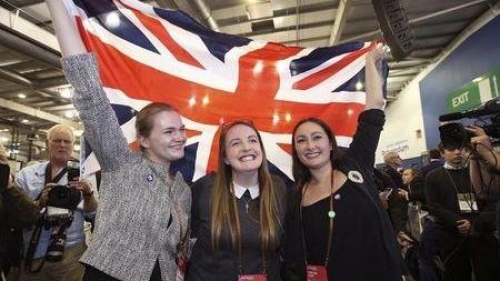Scotland spurned independence in a historic referendum that threatened to rip the United Kingdom apart, sow financial turmoil and diminish Britain’s remaining global clout.

Supporters from the ''No'' Campaign celebrate as they hold up a Union flag, in Edinburgh, Scotland September 19, 2014. (Credit: Reuters)
A vote for the 307-year union is a relief for millions of Britons including Prime Minister David Cameron, whose job was on the line, as well as allies across the world who were horrified at the prospect of the United Kingdom's separation.
Unionists won 55% of the vote while separatists won 45% with 31 of 32 constituencies declared.
Unionists cheered, kissed and drank wine and beer in Glasgow, Scotland's biggest city where secessionists won, while nationalist leader Alex Salmond conceded defeat in Edinburgh, which supported the United Kingdom.
Speaking in front of an image of a giant white on blue Scottish flag, Salmond laced his defeat with a warning to British politicians in London that they must respect their last minute promise of more powers for Scotland.
Opinion polls showing a surge in Scottish separatist support in the two weeks leading up to the September 18 vote prompted a rushed British pledge to grant more powers to Scotland, a step that has angered some English lawmakers in Westminster.
In an effort to deflate that anger, Cameron vowed to forge a new constitutional settlement that would grant Scotland the promised powers but also give powers to England, Wales and Northern Ireland.
Reuters


























